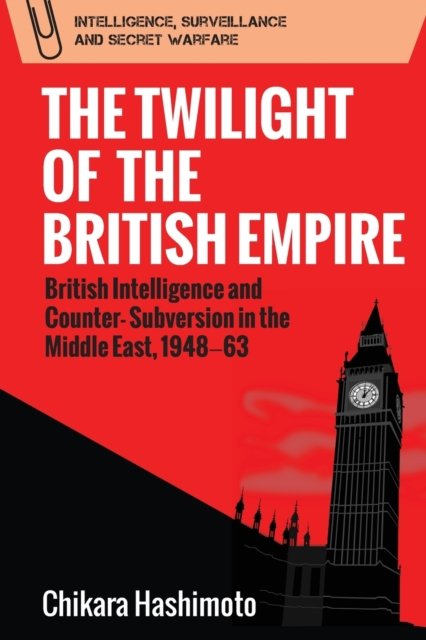 As the Middle-East convulses in yet another bloody war, and with no end in sight to the barbarity, we're all looking for a way to understand the horrors unfolding. So I went searching in the past. What set the seeds of today's conflict and was there any way to prevent it?
As the Middle-East convulses in yet another bloody war, and with no end in sight to the barbarity, we're all looking for a way to understand the horrors unfolding. So I went searching in the past. What set the seeds of today's conflict and was there any way to prevent it?
This is a dispassionate and, it has to be said, dry look at how the British intelligence agencies operated in the region during the aftermath of the 2nd world war. The books makes the compelling case that the UK's obsession with Communism blinded it to the realities of the threats which were developing. The paranoia about sharing the sources of intelligence meant that material could never really be trusted. And a neo-colonial attempt to impose "British" values of policing completely failed to account for local needs.
It's obviously a deep scholarly work - but it rather presupposes a lot of knowledge about the area, it's history and the ramifications of certain events. If you don't know who Nasser was, or why the British wanted to assassinate him, you won't find the answers here.
At times, the book becomes little more than a list of dates and impenetrable acronyms.
Both of those issues make it hard to recommend to anyone who isn't already intimately familiar with the history and the politics of the area.
Nevertheless, there are some choice passages which I think are worth highlighting.
Firstly, the book relies heavily on primary sources. It is sometimes startling to see things described so nakedly:
The principal object of our Middle East policy has recently been stated by Ministers to be the security of the oil on which the United Kingdom so greatly depends. The main instrument by which we hope to achieve our policy is the Baghdad Pact. Its value to the United Kingdom is primarily as a means of improving the Western position in the cold war and retaining the goodwill of two of the oil producing countries, namely, Iran and Iraq. The Chiefs of Staff Committee, 13 July 1956
The hypocrisy can be staggering:
‘we should never descend to their levels’, it would be ‘profitable to borrow certain methods from our enemies’ and ‘we should not hesitate to adopt measures against them which would not be warranted in dealing with a Civilized Power’. TNA: PRO PREM8/1365, 1948
As ever, we see the British prefer "chums" and "good chaps" rather than professionalism. The cult of the amateur is in full force:
These intelligence networks at local initiatives were also sporadic and operated on an ad hoc and personal basis between officers at a senior level. ... MI6 had only very ‘few Arabists’ to understand the nature of the Middle East throughout the 1950s.
It's frustrating to see how events played out with grim inevitability:
This combined MI5 and GCHQ operation ... ‘enabled us to read the Egyptian cipher in the London Embassy throughout the Suez Crisis’ Aldrich, Richard J. (ed.), Espionage, Security and Intelligence in Britain, 1945–1970. 1998
And yet, the crisis was neither averted nor turned to the UK's advantage.
The book highlights repeated examples of British intelligence squandering every opportunity it had. There's no great reveal here. The UK used to have power and influence in the Middle-East. It had the potential to help these states develop, and to try and bring about peace and prosperity. It failed. On every conceivable metric, it failed.
The history of the Middle East can feel impenetrably tangled. This book exposes some of that history, but is not aimed at the casual historian.